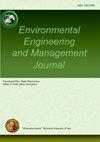节约用水:响应式滴灌和常规灌溉的成本和生产力分析
IF 0.9
4区 环境科学与生态学
Q4 ENVIRONMENTAL SCIENCES
引用次数: 0
摘要
在这项研究中,目的是研究联合国可持续发展目标(UN-SDGs)和巴基斯坦即将面临的气候变化挑战。重点是比较不同的灌溉技术在节水、成本效益和作物产量方面与传统的洪水方法(CFM)的关系。具体而言,研究考虑了响应式滴灌系统(RDI)、地下滴灌(SDI)和抬高床灌溉方法(RSB)。这项研究的数据涉及位于巴基斯坦Potohar高原的一个1公顷的番茄农场。进行联合访谈以收集综合数据,以及以前研究的信息。为了分析灌溉技术的成本效益,本研究利用系统动力学(SD)并使用“VENSIM PLE”软件。为了满足成本效益分析(CEA)的要求,创建了一个单一的SD模型,模拟了25年的相关技术。此外,利用几何均值最大化方法开发了一个优化方案,旨在最大化货币效益的同时保持环境效益的平衡。研究结果表明,RDI节水能力的成本效益比(CER)最高,25年可节约用水13.5万m3。此外,与CFM相比,RDI的作物产量高出78%。另一方面,与CFM相比,SDI显示了最高的作物产量CER,为农民提供了41.5%的收益。本文章由计算机程序翻译,如有差异,请以英文原文为准。
CONSERVING WATER: COST AND PRODUCTIVITY ANALYSIS OF RESPONSIVE DRIP AND CONVENTIONAL IRRIGATION
In this study, the aim is to examine the United Nations-Sustainable Development Goals (UN-SDGs) and the impending climate change challenges in Pakistan. The focus is on comparing different irrigation techniques in terms of their water savings, cost efficiency, and crop yields, in relation to the conventional flooding method (CFM). Specifically, the research considers the responsive drip irrigation system (RDI), subsurface drip irrigation (SDI), and raised-bed irrigation method (RSB). The data for this study relates to a 1-hectare tomato farm located in the Potohar plateau of Pakistan. Joint interview sessions were conducted to gather integrated data, along with information from previous studies. To analyze the cost-effectiveness of the irrigation techniques, the study utilizes system dynamics (SD) and employs "VENSIM PLE" software. A single SD model was created to meet the requirements for cost-effectiveness analysis (CEA), simulating the implicated techniques over a period of 25 years. Additionally, an optimization scenario was developed using geometric mean maximization, aiming to maximize monetary benefits while maintaining environmental benefits in equilibrium. The findings of this study indicate that the cost-effectiveness ratio (CER) for water-saving capacity is highest for RDI, which can save 0.135 million m 3 of water over 25 years. Furthermore, RDI achieves a 78% higher crop yield compared to the CFM. On the other hand, SDI demonstrates the highest CER for crop yield, offering 41.5% more benefits to farmers when compared to the CFM.
求助全文
通过发布文献求助,成功后即可免费获取论文全文。
去求助
来源期刊
CiteScore
1.60
自引率
36.40%
发文量
0
审稿时长
8.6 months
期刊介绍:
Environmental Engineering and Management Journal is an international journal that publishes reviewed original research papers of both experimental and theoretical nature in the following areas:
environmental impact assessment;
environmental integrated management;
risk assessment and management;
environmental chemistry;
environmental protection technologies (water, air, soil);
pollution reduction at source and waste minimization;
chemical and biological process engineering;
cleaner production, products and services;
sensors in environment control;
sources of radiation and protection technologies;
waste valorization technologies and management;
environmental biotechnology;
energy and environment;
modelling, simulation and optimization for environmental protection;
technologies for drinking and industrial water;
life cycle assessments of products;
environmental strategies and policies;
cost-profitt analysis in environmental protection;
eco-industry and environmental market;
environmental education and sustainable development.
Environmental Engineering and Management Journal will publish:
original communications describing important new discoveries or further developments in the above-mentioned topics;
reviews, mainly of new rapidly developing areas of environmental protection;
special themed issues on relevant topics;
advertising.

 求助内容:
求助内容: 应助结果提醒方式:
应助结果提醒方式:


